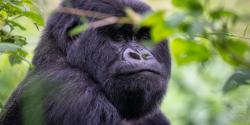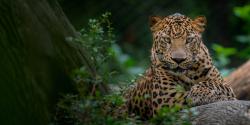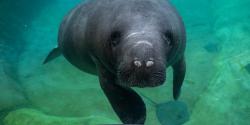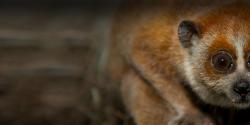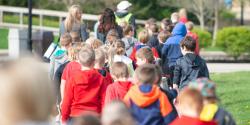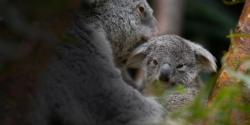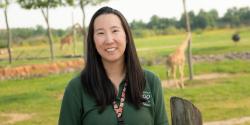For humans, going to the doctor or the dentist is usually a regular task that involves minimal preparation. For large mammals, like pinnipeds (seals and sea lions), a great deal of time, training and planning are necessary to make sure the animals are comfortable and confident when it’s time for a visit to the doctor or dentist. In this blog, we're taking you behind the scenes to learn how the Zoo's Pinniped team prepares some of their residents for medical procedures!
The primary objective of the pinniped care and health teams at the Columbus Zoo and Aquarium is to detect subtle health changes that would be otherwise imperceptible without specialized training, enabling them to intervene at an earlier stage. Animals are adept at hiding illness or pain as a survival instinct…revealing distress in their native ranges could make them vulnerable to predators. Through dedicated training and the establishment of strong relationships with their Animal Care team, the Zoo can promptly address health conditions such as dental or other medical issues.
Training plays a critical role in providing the animals with both mental and physical stimulation, forming bonds between staff and the animal and ensuring that an animal's health can be monitored and assessed properly. Pablo Joury, Curator of Pinnipeds – Wild Encounters at the Columbus Zoo, says, “Our incredibly-skilled training staff, and the close bonds that they have with these animals, allow us to be successful in ensuring the health of the animals in our professional care.”
Meet harbor seals, Keaton and Ferris!
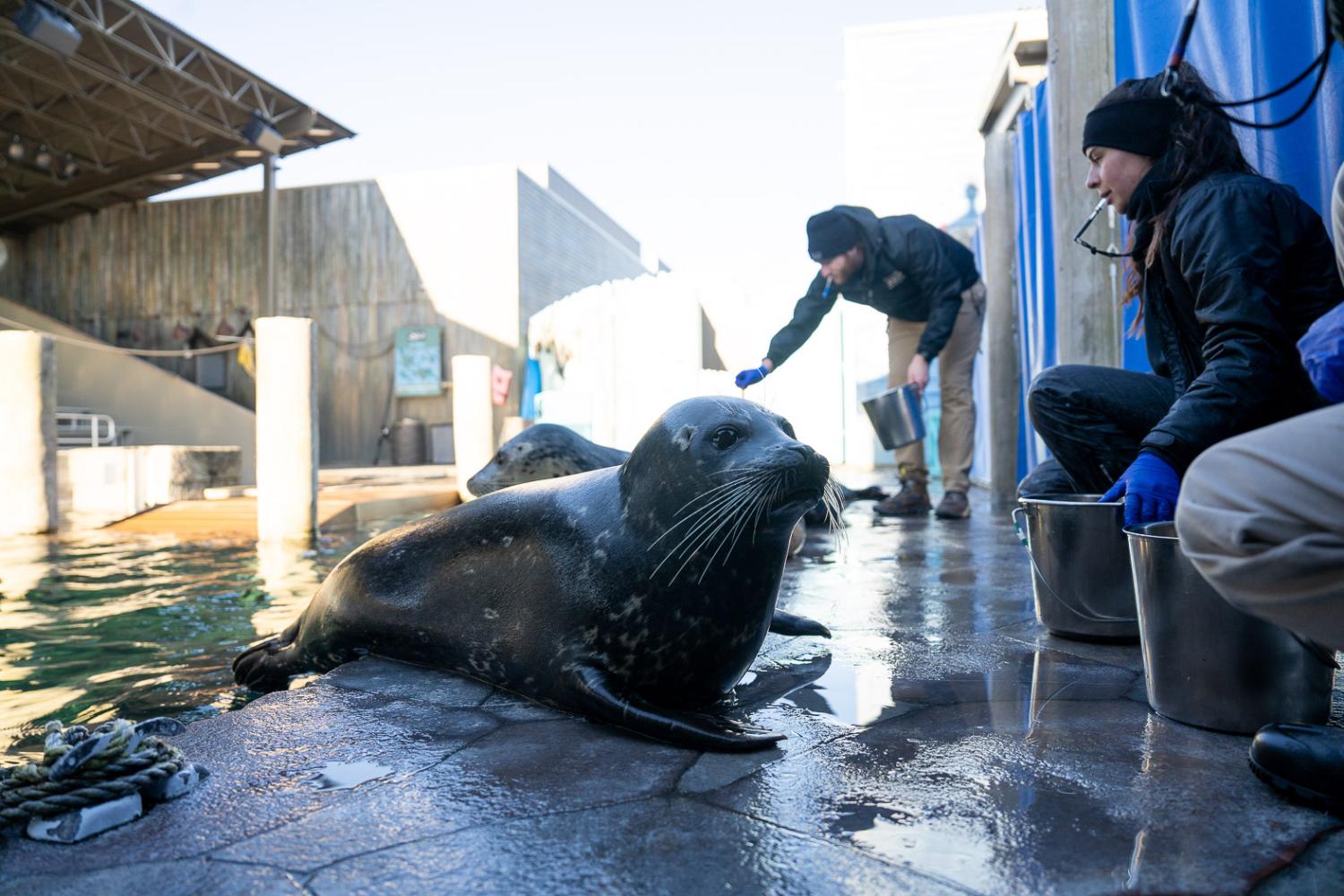
|
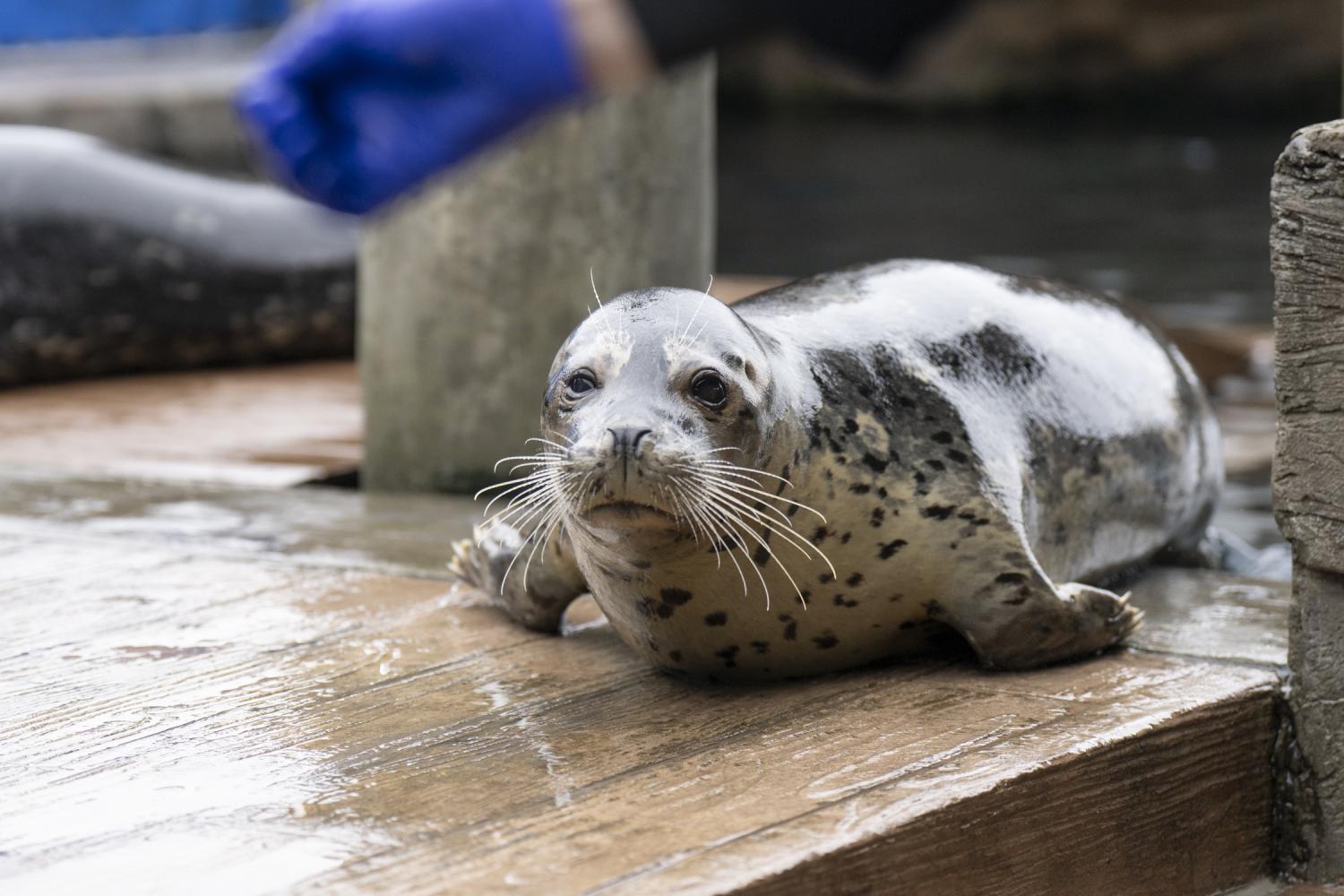
|
Like all animals under the Zoo's professional care, Keaton and Ferris participate regularly in voluntary husbandry behaviors. Over the last few weeks, the Pinniped trainers have been working closely with both animals to prepare them for their upcoming dental cleanings.
- Mouth-opening and X-ray behaviors. Before deciding if a dental procedure is necessary, the pinniped team trains a "mouth open" behavior so our veterinarians can see inside their mouths and visually check each tooth. Additionally, the pinnipeds trained to voluntarily participate in dental X-rays, should the Animal Health team want radiographs.
- Voluntary crate behavior. Keaton and Ferris's dental cleanings will take place inside the Zoo's Animal Health building. To get Keaton and Ferris from the Pinniped Building to the Animal Health building, they will crate voluntarily into a seal-sized kennel (it’s the largest dog kennel made). That crate will then be loaded into an Animal Health van for transport to the hospital. Supervisor of Wild Encounters-- Pinnipeds, Shea Eaves, explained how her team adjusts their daily schedule to make sure the animals are as prepared as possible before a procedure: "Crate training sessions are a regular part of each animal’s training, but when we know a medical procedure is coming up, our team will begin asking them to crate more frequently, usually once a day. On the day of the procedure, the Animal Health team asks us to be ready by 6:30 a.m. Since our normal day doesn’t start until 8:00 a.m., we will adjust the staff’s schedules to come in earlier a few days a week so early morning sessions start to become a normal part of their day.”
The dedication of our Pinniped Animal Care and Health teams shines brightly as they consistently excel in ensuring the well-being and flourishing of our harbor seals and other residents of Adventure Cove. Keaton and Ferris serve as ambassadors for their species, play a pivotal role in our mission as a hub for wildlife conservation, and their care exemplifies the Zoo’s commitment to fostering a thriving ecosystem.
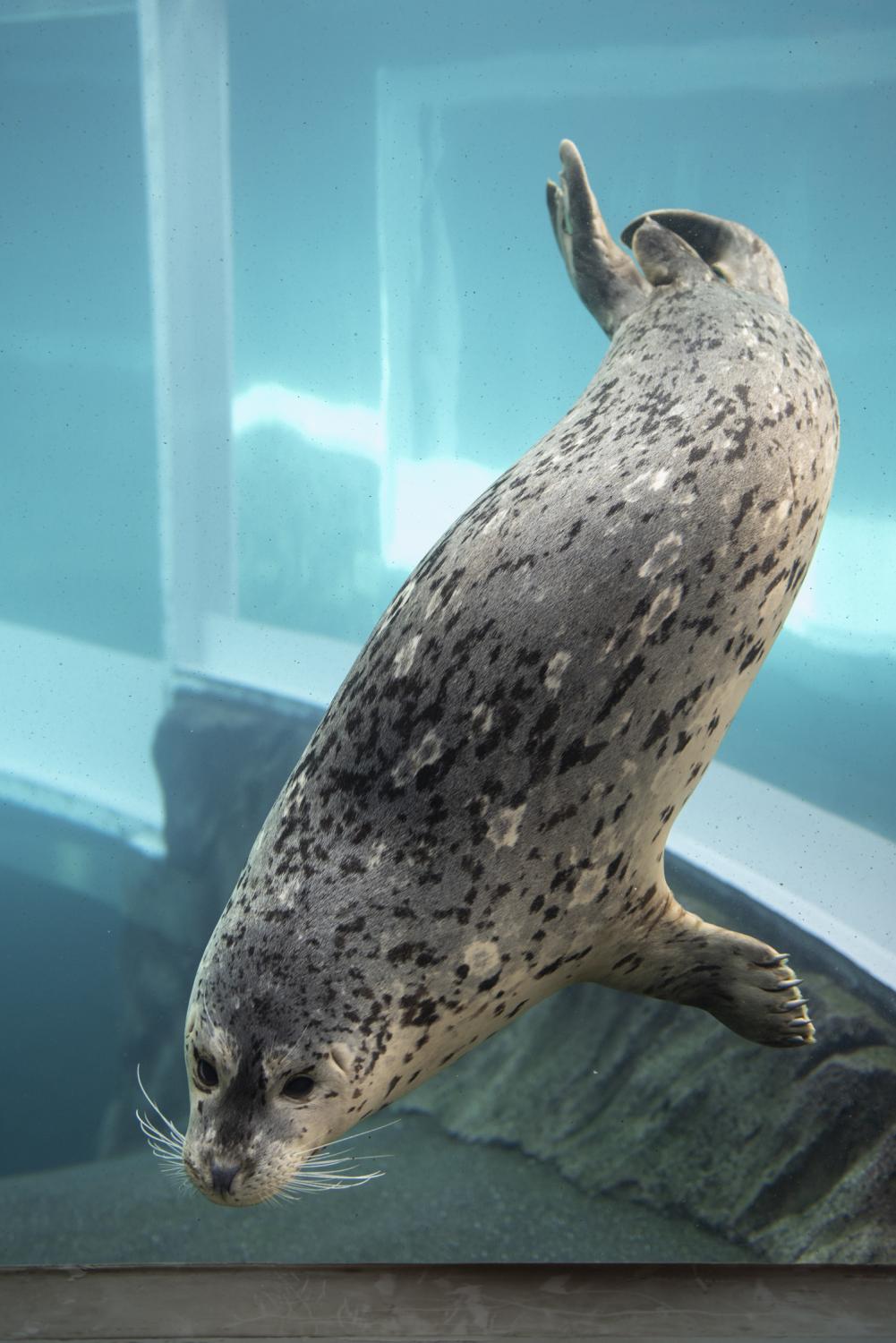
Get Involved
There's plenty of ways to learn more about Harbor Seals and the other pinnipeds that call Adventure Cove home!
Attend a Keeper Talk Take a Seal and Sea Lion Tour Donate to the Zoo

